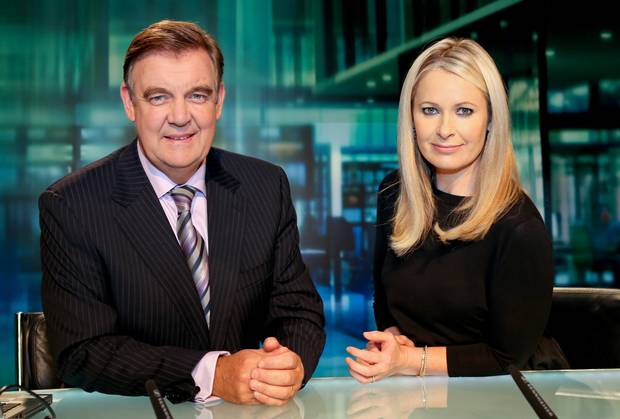
It’s a man’s world

So, I don’t have it too bad, have no real concept of what it’s like to have obstacles placed in my path on the basis of the colour of my skin, religious beliefs, country of origin or sexual orientation. Therefore, I’m able to view the struggles of those battling for equality with a dispassionate air, sympathising with their plight, their fight, without being moved enough to actually go out there and join them.
I’m part of the silent majority, supporting the rights of those standing up for what they believe in, but far too caught up in my own existence to do anything about it.
A large part of this apathy comes from the knowledge that this is someone else’s struggle, that, as sympathetic as I may be, the outcome of these battles doesn’t affect my life either way. I support those who wish to repeal the eighth amendment, think immigrants should be allowed to work as soon as they get here, and believe in harsher sentencing for sex offenders, but none of those issues are of vital importance to me, none directly influence my existence in any way, shape or form.
And the same could be said for the pay gap between men and women. Again, as a young man with aspirations of making it to the pinnacle of my profession, I don’t ever consider my gender, believing that I will be judged solely on the quality of my work and my suitability for the job. The mere notion of being paid more because I urinate standing up seems ludicrous to me, a phenomenon that occurs in other professions, trades where women are perennially undervalued, their work deemed inferior to that of their male colleagues.

The revelation that Sharon Ní Bheoláin earns €80,000 less per annum than her Six-One co-anchor, Brian Dobson, is testament to that. You could argue that there are mitigating factors, that Dobson has been in the job for 21 years, Ní Bheoláin just 12. But even with incremental annual pay rises, the chasm between their pay packets should not be so vast.
There is also the question of whether this story has emerged to coincide with Dobson’s reported departure from the main evening news, and whether Ní Bheoláin is using it to increase her bargaining power when it comes to finding his replacement. But those are secondary factors, footnotes to a staggering portrayal of life within the confines of our national broadcaster. You’ve all seen the Six One news at some point in your life, watched the two anchors document the day’s events; only the most misogynistic of you would argue that Dobson’s input is worth €80,000 more than Ní Bheoláin’s.
Displaying a painful lack of self-awareness, An Taoiseach, Leo Varadkar, has welcomed a review of RTÉ’s pay structure, believing that “there should be equal pay for equal work and equal experience” across all sectors. The irony is that Varadkar has faced virulent criticism for the gender imbalance in his first cabinet, the insinuation being that he had blithely ignored capable female deputies in favour of their male counterparts.
However, it’s important that we don’t confuse gender quotas, positive discrimination and the representation of minorities with what’s going on at RTÉ. Because this is a much more troubling problem, an entrenched mindset which, if left to fester, could prove corrosive.
It’s one thing to overlook women in favour of men, you can always make a subjective argument as to why you’ve done so. But to employ two people, a man and a woman, in the same job, and to pay them grossly different amounts, suggests that this is an organisation rotten to its core. Let’s not forget that this is a company which, former employee, Ian Dempsey (who left RTÉ twenty years ago) described thus: “when you go back, the scary thing is you sometimes see the people that you saw before out there and they have got older but they seem to be doing the same things, walking down the same tracks.”
Having established that, at RTÉ, an Irish man can earn almost twice that of a woman for doing the same job, it’s then of paramount importance that we examine the gender balance in the upper echelons of the station. The Late Late Show may long have ceased to be relevant, but it is still the one they all aspire to, the very top of the mountain. Remarkably it has only ever had three hosts (save for the odd guest appearance), but all three have been men. And even now, in this brave new era, many would baulk at the suggestion of a woman taking over from Ryan Tubridy. Tune into Radio 1 at any given time and you’re more than likely to hear a male voice, Ray D’Arcy, Joe Duffy and Dave Fanning dominating the airwaves while Marian Finucane and the outnumbered ladies struggle to get a word in edgewise.

But then you watch Claire Byrne Live, a show, which for my money, is everything The Late Late used to be, and no longer is. You watch Claire grill public figures, micro-manage rowdy audiences. You watch her switch from stern schoolmistress to concerned mother, sister or daughter in the blink of an eye, and you ask yourself why this woman is consigned to a graveyard shift on Tuesday nights, why she isn’t vying for the biggest gigs with the biggest wages?
And you watch Sharon herself, the ice-maiden of Irish television, that steely gaze as she reduces another pompous politician to a quivering wreck, and you wonder how she’s not running the entire show, how anyone would even dare to undervalue such a compelling presence, this mistress of all she surveys.
And then you remember that this is RTÉ, an organisation that rivals the Catholic Church for its intransigency, a company which, were it not for the intervention of former managing director, Kevin Bakhurst, would have underpaid every female member in its newsroom for years to come.
These are the people responsible for Sharon Ní Bheoláin’s plight, the people who have ensured that she goes to work every day with a bristling sense of injustice. And they’re the people who will ensure that the next host of The Late Late Show is not the highly-qualified, perfectly suitable, Claire Byrne, but someone good, bad, indifferent, and male.
Licence, insurance and registration, please

But thanks to Oregon’s Department of Human Services, all that might be about to change. In a case that could set a precedent the world over, an American couple have had their two sons taken away from them because they weren’t deemed intelligent enough to care for them.
Having been psychologically evaluated, Amy Fabbrini (31) and Eric Zeigler (38) were found to have IQs below the rate required to be a responsible parent. Fabbrini scored 72, placing her in the “extremely low to borderline range of intelligence,” while Ziegler, managed just 66 placing him in the “mild range of intellectual disability.” Ziegler also receives disability payments due to his learning difficulties.
It may sound cruel but I think Oregon is onto something here, I mean how many children are born into needless suffering because of the fecklessness of parents incapable of looking after them?
Bring in a licence I say, and a test to accompany it, feck it, while we’re at it, let’s throw in an annual NCT, or an equivalent at least.










